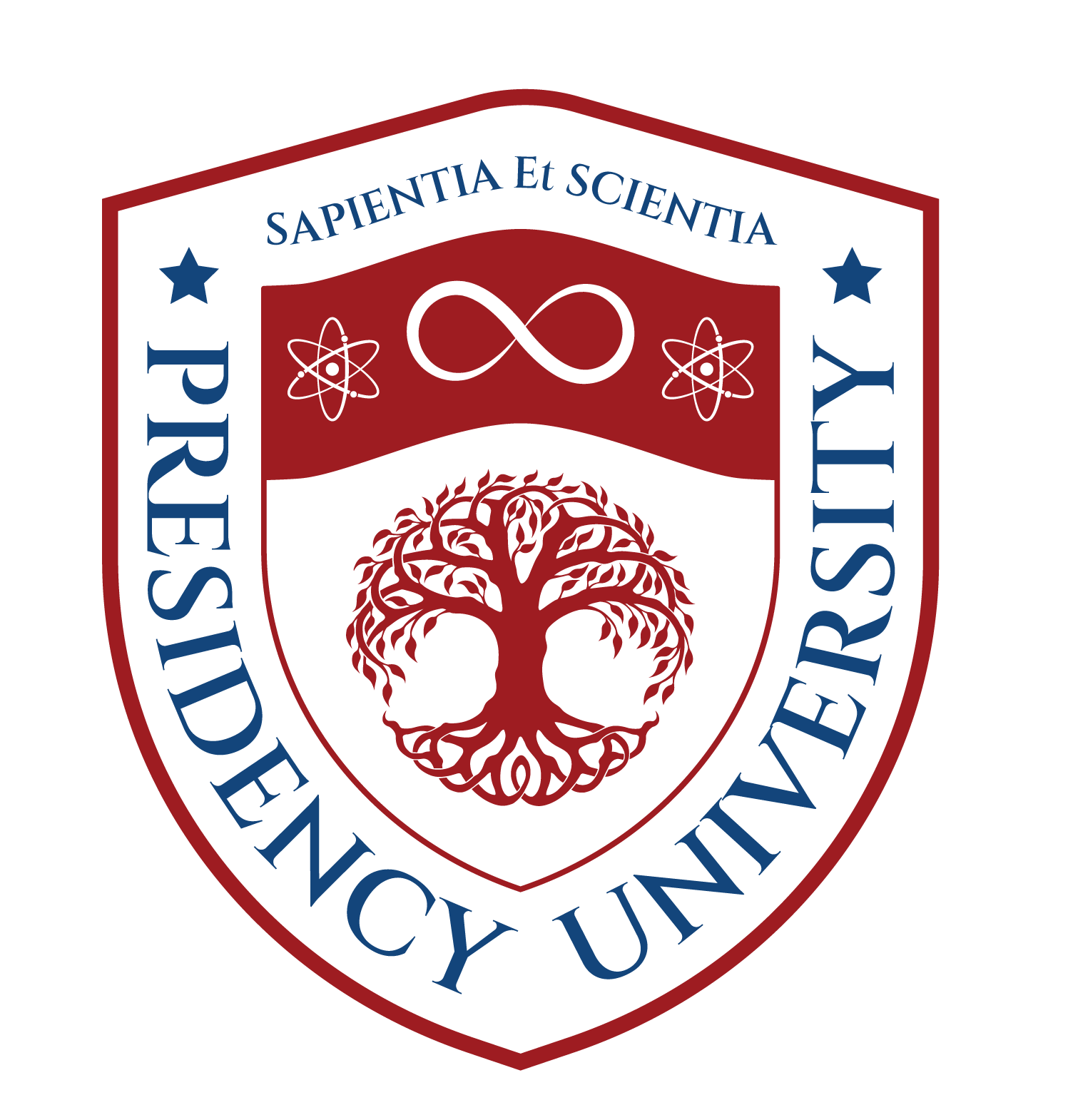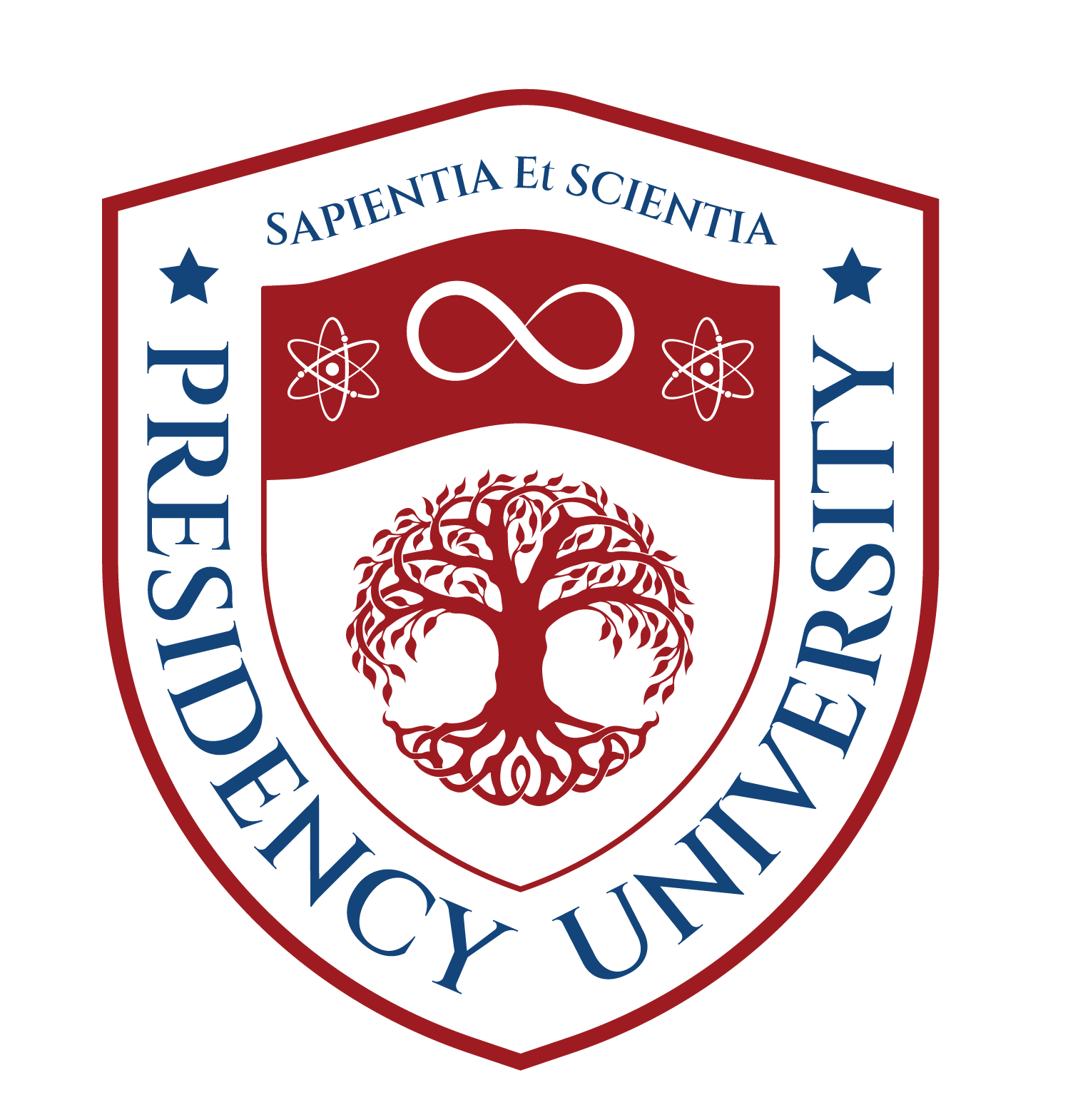ECE Labs
Department of Electrical and Computer Engineering
LABORATORY FACILITIES
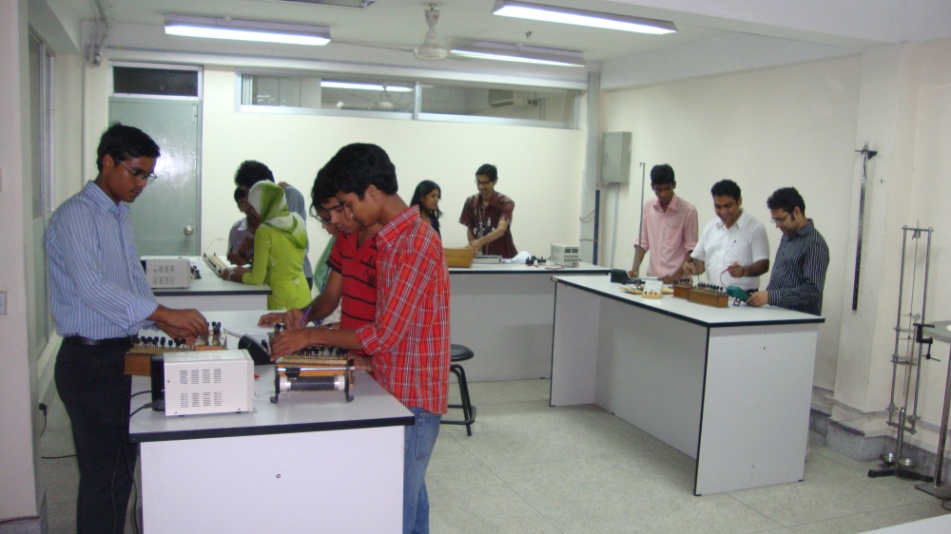
1. Physics Laboratory : This laboratory is well equipped with various types of apparatus such as calorimeters, post office box, meter bridge, potentiometer, polarimeter, compound pendulum, stop watch, microscope, sonometer, water heater, calorimeter, polarimeter, optical bench, traveling microscope, resistance boxes (ranging from 0.1ohm to 10,000 ohm), rheostat of various ranges, slide calipers, screw gauges, spherometer, capillary tubes, Searle’s apparatus, galvanometers, DC power supply, voltmeters, ammeters, multimeters etc.
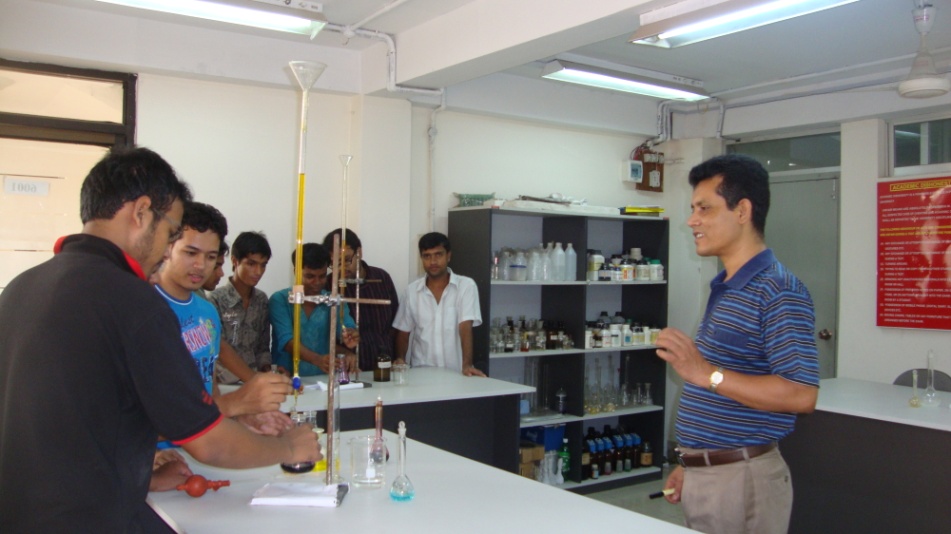
2. Chemistry Laboratory : This laboratory is well equipped with various types of apparatus such as, analytical balance, burettes and pipettes, conical flask, volumetric flask, pH-conductance-TDS meter, DO and COD meter, distilled water plant, suction pumps, and various chemical equipment and chemical reagents. Various types of chemicals are used to do experiments on volumetric and gravimetric analysis, general systematic organic and inorganic salts analysis, p-H metric and potentiometric titration etc.
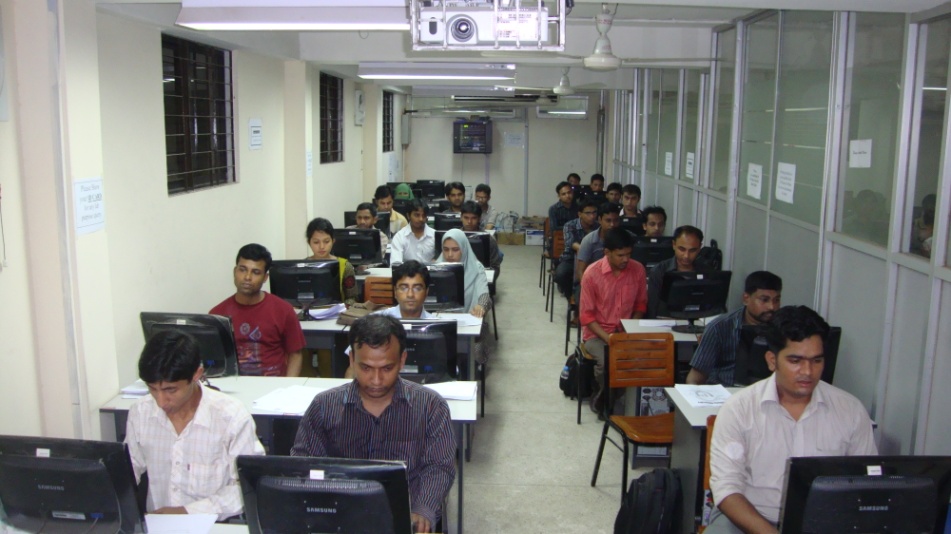
3. Computer Laboratory: The Department of ECE has one computer laboratory equipped with twenty five (25) PCs with latest configuration and programming, graphics and database softwares as well as latest version of various simulation tools. In the programming courses, students are taught basics of computer programming languages and also they build small course projects. Besides, this laboratory is used for various simulation experiments, such as, control systems, digital signal processing, electrical circuits, electronics etc.
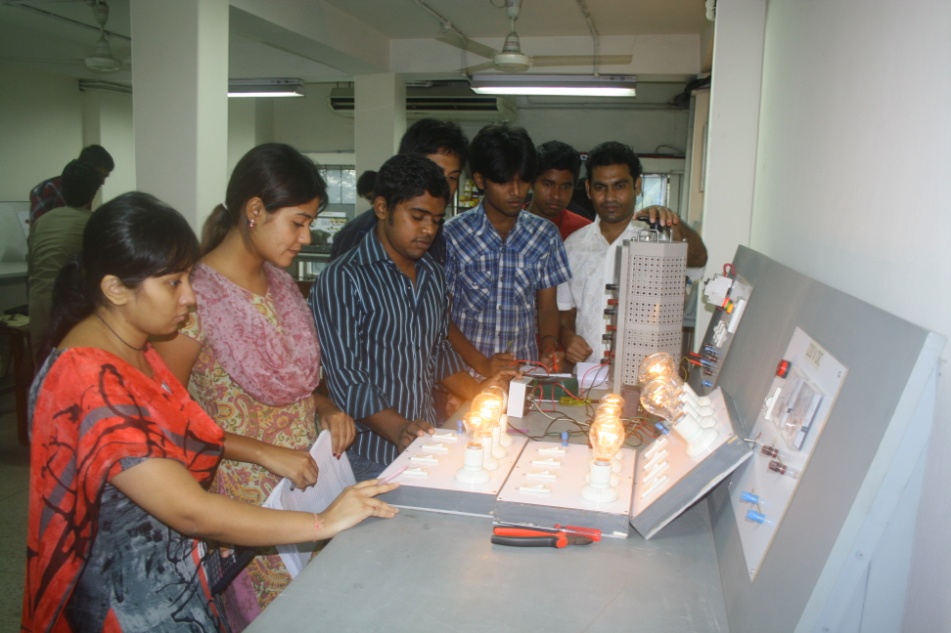
4. Electrical Circuits Laboratory: This laboratory is equipped with various types of resistors, variable rheostat, inductor bank, capacitor bank, dc and ac power supplies, switches, lamp boards, ammeters, voltmeters, clamp-on meters, variacs, oscilloscopes etc. Here students verify different electrical circuit and network theorems e.g., KCL, KVL, mesh, node, thevenin’s, maximum power transfer, superposition theorems etc.
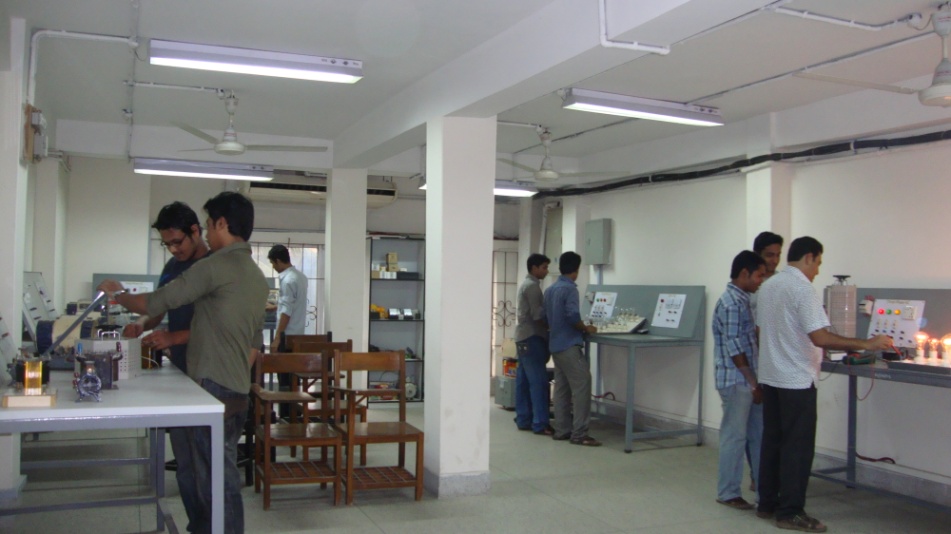
5. Electrical Machines Laboratory: This laboratory is equipped with various types of equipment, such as, wound rotor slip-ring Induction motor, synchronous machine, DC compound motor, single phase induction motor, three phase induction motor, clamp on meter, digital wattmeter, analog wattmeter (single phase), analog watt meter (three phase), electric blower, DC power supply, transformer (Single Phase), Rheostat, single and three phase voltage regulators, tachometer, lamp board, ammeter, voltmeter etc. Using these machines and meters, students mainly do experiments on finding the machine characteristics and various parameter values. Besides, there are few highly configured personal computers for simulation works of electrical machines
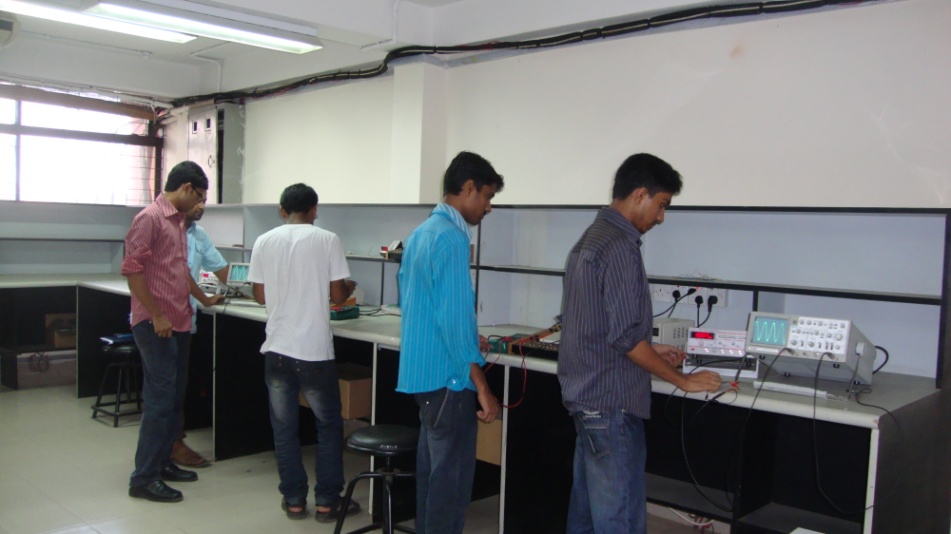
6. Analog Electronics Laboratory: This laboratory is well equipped with various types of analog trainer boards, oscilloscopes, dc power sources, function generators, multimeters, LCR meters. Besides, in this laboratory we have wide ranges of resistors, capacitors, inductors, , variable resistors, diodes, zener diodes, transistor, MOSFET, analog ICs etc. Students are engaged in doing experiments on study of semiconductor device characteristics, voltage regulator circuit, rectifier circuit; adder, integrator and differentiator circuit using linear op-amp IC, minority carrier life-time measurement of LDR and LED. Besides, students build project on CE/CC amplifiers, oscillators, power amplifier circuits etc
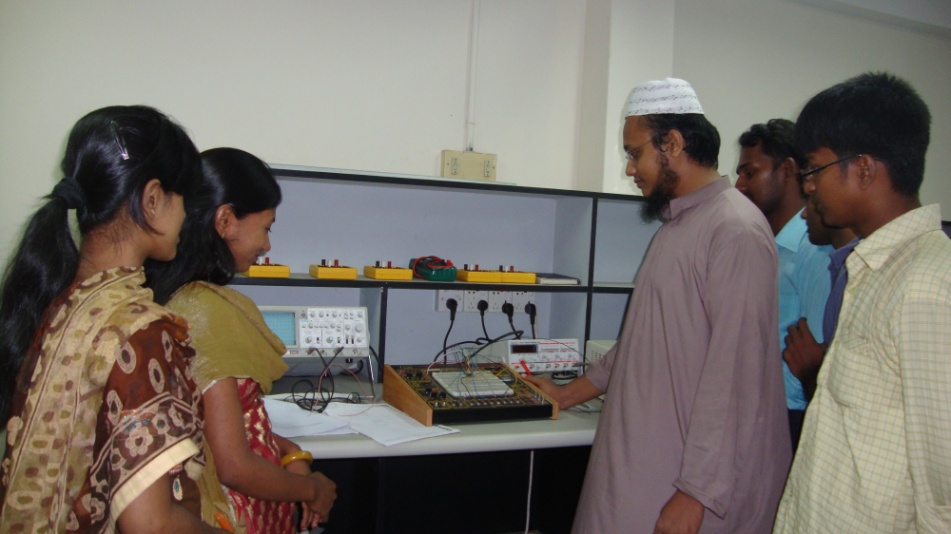
7. Digital Electronics Laboratory: This laboratory is featured with state-of-the art laboratory equipment such as, digital trainer board, logic probe, IC tester, IC extractor, digital meters, data switches, and wide ranges of digital ICs of TTL and CMOS series. Students do laboratory experiments on designing combinational and sequential circuits. Students build-up projects on digital control circuits, digital voltmeter, digital timer etc.
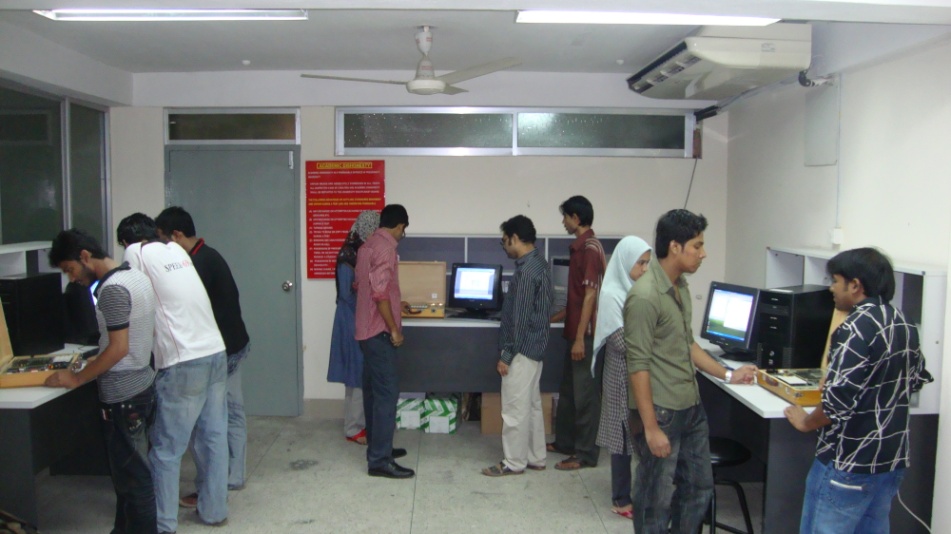
8. Microprocessor and Interfacing Laboratory: This laboratory is established with 8086 microprocessor trainer kits, Pentium IV microcomputer, memory and interface ICs and devices .Students do project on microprocessor and pc based dc motor and stepper motor controls, control of different electrical appliances through relay, display different patterns on LED, seven-segment display and dot-matrix display.
9. Measurement and Instrumentation Laboratory: This laboratory is equipped with various types of test and measurement instruments like galvanometer, ammeter, voltmeter, wattmeter, energy meter, solar panel, different types of transducer etc. Students design and implement experiments on differential and instrumentation amplifier, universal voltmeter, power and energy measurement techniques.
10. Power Electronics Laboratory: In this laboratory, students mainly do experiments on study of device characteristics of power MOSFET, power BJT, SCR, TRIAC, DIAC, UJT, IGBT etc. They also use PSPICE and MATLAB software packages to simulate various types of power electronics circuits e.g. controlled rectifier, PWM inverters, switching mode regulators, resonant pulse inverters, AC voltage controllers, cycloconverters etc.
11. Control Systems Laboratory: At present, students are using ‘Control System Toolbox’ of MATLAB to study the modeling of the open loop and close loop control systems, to find the step response to a system of different orders and types, to design analog and digital control systems using root locus method and PID controller, to find frequency responses using lag/lead compensator, to find the error co-efficient of a system for different type of input signals etc.This laboratory has also been furnished with the modern state-of-the-art Programmable Logic Controller (PLC) of LJ Technical Systems, UK. Using this equipment, students learn about the drawing of relay ladder logic diagram, run programming and also do experiments on how to run a conveyer belt and how to program the PLC from the PC and download the program to the PLC and control various devices using the PLC. Digital Signal Processing Laboratory: This laboratory is also being developed using the DSP training kit of Texas Instruments. At present, students are doing experiments using ‘Signal Processing Toolbox’ of MATLAB. They are doing experiments on sample sequence generation, noise cancellation of an image, study of FIR and IIR filters, power spectrum analysis, wav file processing etc.
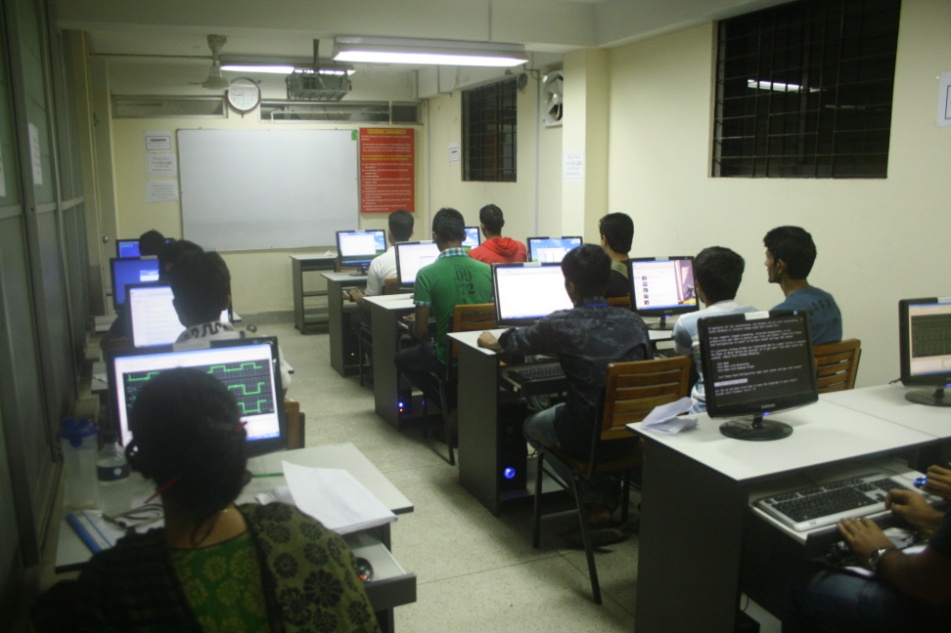
12. VLSI Laboratory: The Department of ECE has one computer laboratory equipped with twenty five (25) PCs with latest configuration as well as latest version of various simulation tools for VLSI circuit design, such as, PSPICE, Microwind, DSCH and verilog HDL. In this laboratory, students learn about how to design and simulate CMOS VLSI circuits of various basic digital logic gates. They are also taught basics of PSPICE programming and also they build few small projects.
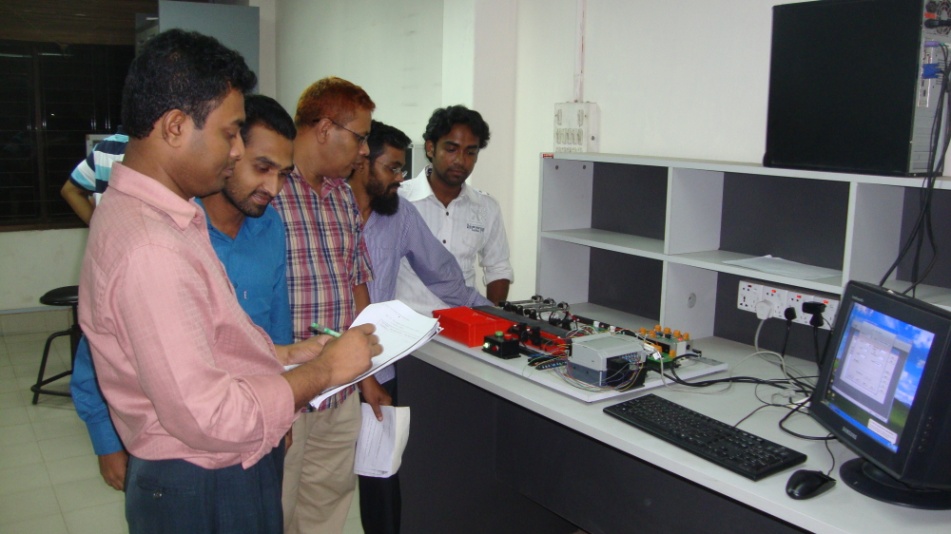
13. Computer Networks Laboratory: In this laboratory, we have PCs connected in a LAN for three students. This laboratory is provided with Windows 2000 Professional Servers, NIC, Crimpers, twisted pair cables, RJ45 connectors, router, switches, hubs and other networking kits. Besides, students are doing experiments on AM, FM, PCM, QPSK, ASK, FSK, GMSK, BER calculation, TDM, TDMA, CDMA etc. using ‘Communication Toolbox’ of MATLAB.
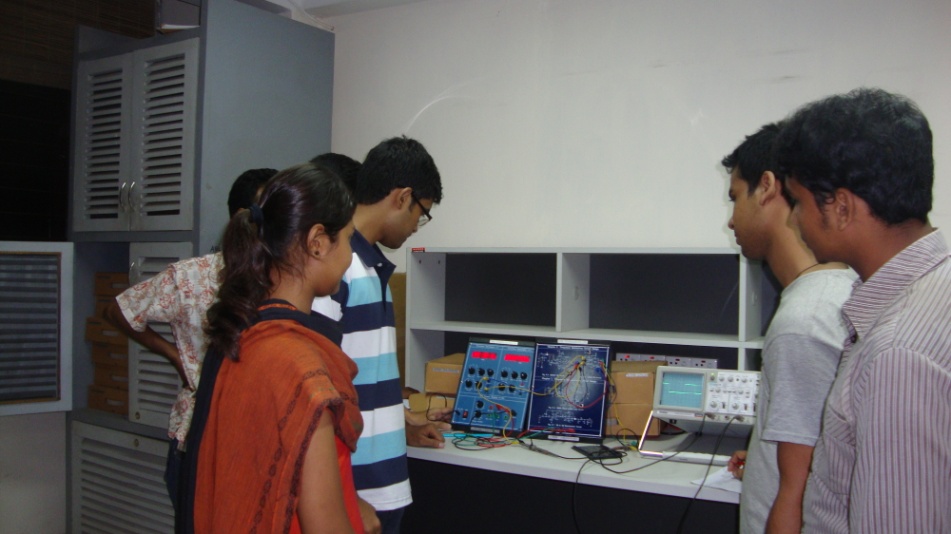
14. Communication Engineering Laboratory: This laboratory has been set-up by the experimental kits from ETEK Technology Co Ltd, Taiwan. In this laboratory, students can do experiments on AM & FM modulation/demodulation, FSK , PSK, QPSK modulation/demodulation, PC based tunable LPF, phase shifter, signal multiplier, convolution code encoder/decoder, delta modulation/demodulation, PCM, signal transmission through optical fiber, signal attenuation in optical fiber, use of telephone set, caller ID identification, working principle of telephone exchange etc. Besides, they do few experiments using MATLAB and its communication toolbox.
